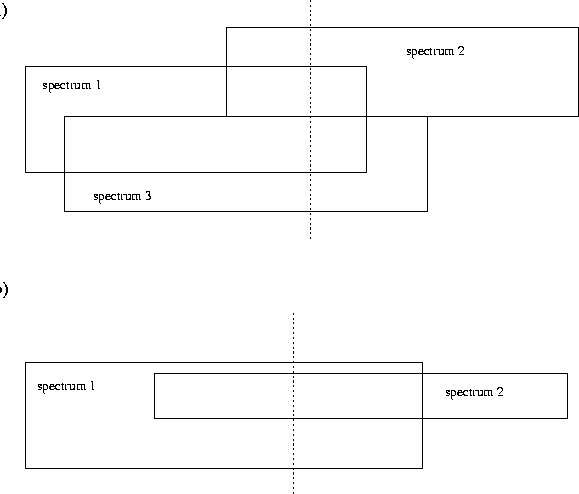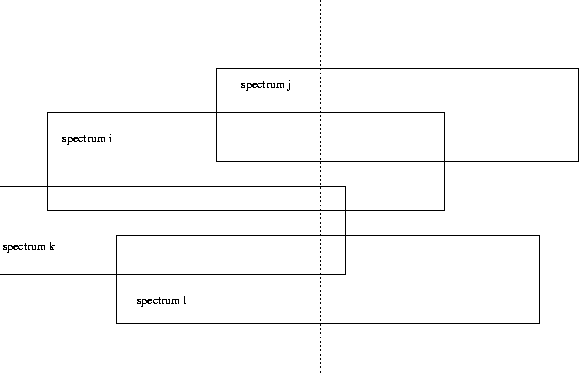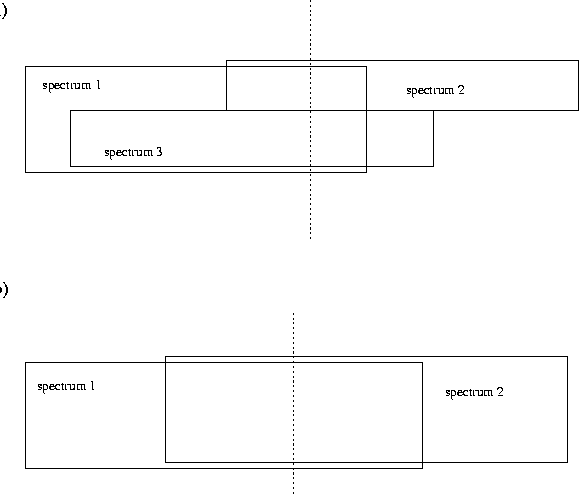



Next: Correction for Contamination
Up: Deblending Overlapping Objects
Previous: Identification of overlapping spectra
For the regions of overlap, the spectral point Fj,k contains the
correct flux from object j, but in addition it contains flux from
spectral point Fi,l, where l= k- xmax,i-xmin,j and vice
versa. Let's call Fi,l the spectrum as normally extracted, and
Fi,l(true) the true spectrum of object i at wavelength l, and
cij,l the contamination factor, then:
|
Fi,l= Fi,l(true) + cij,l Fj,k(true)
|
(12) |
were k= l + xmax,i-xmin,j
and
|
Fj,k= Fj,k(true) + cji,k Fi,l(true)
|
(13) |
were l= k - xmax,i-xmin,j.
Now we want to estimate the 2 contamination factors cji,k and cij,l:
Normally the spectra are computed
|  |
(14) |
where g is the flux on the grism image and w is the weight.
The sum goes perpendicular to the dispersion direction in the region of
object i.
Now in order to estimate the contamination from spectrum j, we just
add the weights for object j at the position of object i:
|  |
(15) |
The sum is along y in the region of object i. Note that the sum
of the weights of object j is in region of object i!
and similarly:
|  |
(16) |
Figure 3.5:
Two examples of situations where the spectra can be
deblended at the wavelength marked with the dashed lines. a) even
though there is no region of spectrum 1 which is not contaminated at
the dashed line, both the spectrum 2 and 3 are partially
uncontaminated and can therefore be estimated. This estimate in turn
can be used to correct spectrum 1. b) Again, spectrum 1 can be
estimated from the uncontaminated part, which in turn allows to
extract spectrum 2.
 |
Figure 3.6:
Example of a complex situation with the overlap of several spectra.
 |
Figure 3.7:
Two examples of situations where the spectra cannot be
deblended at the wavelength marked with the dashed lines. In both
situations, there is no region of spectrum 1 which is not contaminated
by other spectra. Therefore, there is no information in that image
which could be used to decide to which spectrum a particular feature
belongs.
 |




Next: Correction for Contamination
Up: Deblending Overlapping Objects
Previous: Identification of overlapping spectra
Wolfram Freudling
5/29/1999


